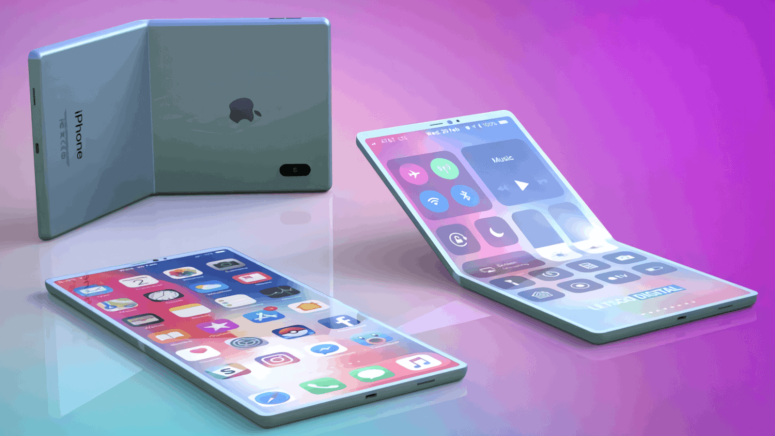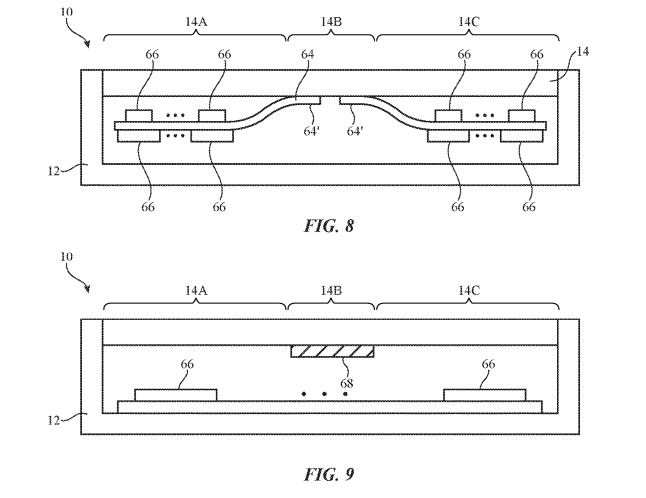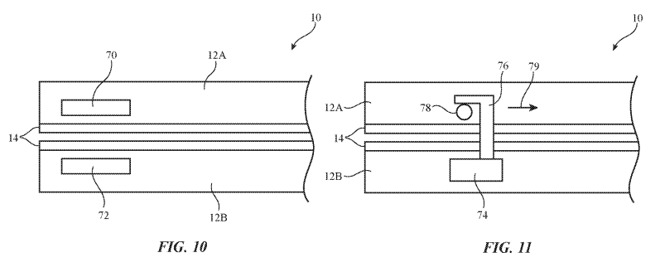
Apple Considers Heating Systems for a Foldable iPhone
- Apple is exploring possible ways to protect a folding screen during low-temperature conditions.
- The heating element that draws power from the battery is one way, and the screen light as a heating source is another.
- No official plans for launching a folding iPhone have been disclosed, but the patent shows that Apple’s engineers are considering the probable problems.
No one asked for them, they bring more problems than they solve, and they feel like they have no real usability purpose. Foldable phones with bending screens are the next “big thing” in the world of tech gadgets, and whether you like them or not, they are going to be the focus of R&D departments of all major smartphone manufacturers in the next couple of years. The latest product of this focus comes from Apple’s engineers, who are exploring interesting ways to prevent damage to the screen due to flexing it in cold weather conditions.
Following the principle of fighting the cold with warmth, Apple’s engineers want to dissipate heat across the screen’s “flexing zone”, which is the most vulnerable stripe of display asset that undertakes the role of stretching and getting back into shape for many thousands of times. According to a recent patent application published by the U.S. Patent and Trademark Office, Apple believes that the riskiest situation stems from using the flexible display on low temperatures because this is when the adhesives, as well as the display itself, becomes resistant to shape changes. When exerting force to flex a cold screen, it could mean that it snaps out of place or stretches beyond its elastic deformation point.
source: appleinsider.com
To address this problem, Apple’s engineers explore the possibility of incorporating built-in heating elements that are activated when required. For this to work, the device will also have to deploy several temperature sensors positioned in critical locations and start a warming procedure when needed. Another idea is to use the screen light itself to heat up the flexing zone, making that particular area brighter for a while until it reaches the designated temperature. To prevent users from opening the foldable iPhone to “tablet mode” while the screen is not warm enough yet, Apple presents two possible ways in the patents, namely a magnetic and a physical latching mechanism.
source: appleinsider.com
While filing patents don’t necessarily mean anything about the company’s strategy or product launching plans, analysts suggest that a folding iPhone may be actually materialized by as soon as the end of 2020. However, Apple is not known for its hopping on premature technology wagons, and by the time they decide to do so, the folding phones craze may have settled down. For now, we keep Apple engineers’ ingenuity and the fact that they seem to be the first to have anticipated cold-weather risks that other folding phone manufacturers may not have taken into account.
Where do you stand on the folding phone trend? Would you buy one by Apple if it was available? Share your opinion in the comments section below, and don’t forget that you can always check our socials, on Facebook and Twitter, and learn what’s on in the tech world every day.









